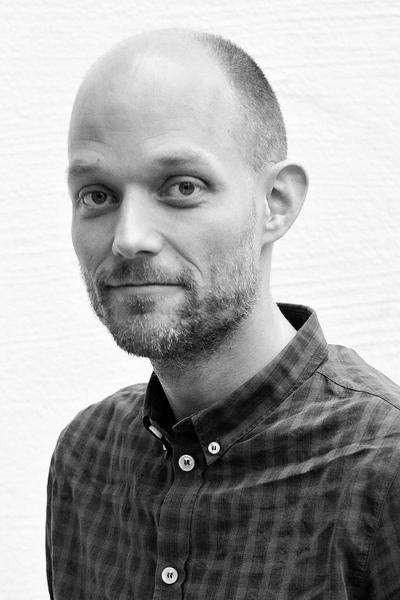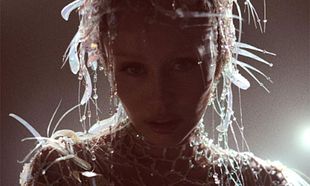Less concerned with the dangers in navigating the hazardous streets, this story of a woman who has recently lost her sight explores the idea that sometimes the most dangerous place of all is in your own mind.
"I can still see in my dreams." Ingrid (Peterson) has recently lost her sight and has confined herself to her and her husband Morten’s (Rafaelsen) spacious Oslo apartment. But this isn’t the safe haven she hoped it would be: left to her own devices Ingrid retreats inside her mind, succumbing to fear, insecurity and jealousy. She imagines stories and scenarios involving the shy, porn-obsessed Einar (Kolbenstvedt) and his wretched attempts to woo pretty neighbour Elin (Vitali). But then these stories begin to affect her relationship with Morten; when she isn’t fantasising that Morten sexts other women in her company, she imagines him pretending to leave the apartment only to sneak back in and observe her.
The mind it a dark and terrible place to be sometimes, especially when one has a penchant to focus on the horrible things it dredges up from the subconscious. Blind, the directorial debut from Eskil Vogt, the writer of Oslo, August 31st, revels in the terrible insecurities that the condition throws up – not just the fear of being able to make it down the street without walking into something, but the sexual anxieties that arise.
Fledgling filmmaker Vogt works hard to take the audience inside Ingrid’s head: the vulnerability, the isolation, the fear. Where the film is most memorable is when Vogt has Ingrid imagine little scenarios – like picturing Morten is watching her undress, still finding her sexually attractive, only to coldly snap back to reality by having him yawn in bed as he types on his laptop – he’s not even looking at her. Or when Ingrid does her best to dress nice for a work d but imagines her outfit and makeup to be a disaster while everyone quietly sniggers at her, her husband included.
This cutting back and forth from imagination to the real world creates confusion as to what’s really happening and while the metaphysical nature of the film, and Vogt’s pronounced use of sound and shifting backgrounds, can make it hard to grasp on to the story at times, it’s an original peek into a troubled mind. There’s even a shout out to Morrissey’s Bona Drag (hooray!), but Vogt strangely/thankfully resists the temptation to make a reference to that album’s Yes, I Am Blind.
A very impressive debut.















































































